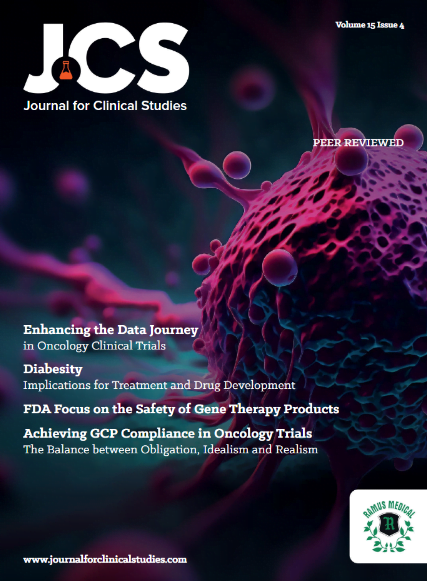Merck & Co Inc’s abstract presentation regarding KEYNOTE-426 trial at ASCO GU 2019 (16 February 2019) has confirmed that Keytruda, an anti-PD-1 therapy, in combination with Pfizer’s Inlyta, a tyrosine kinase inhibitor, can significantly improve clinical outcomes for renal cancer patients.
Amrita Gujral, Pharma Analyst at GlobalData, a leading data and analytics company, offers her view on the impact of this trial result on the renal cancer treatment paradigm and market:
“Current renal cell carcinoma treatments have led to an improvement in survival rates, although patients with metastatic disease still have a 5 year survival rate of less than 10%, hence prognosis is poor. This new first line targeted therapy promises to offer a treatment option which can help to improve this low survival rate figure.
“The trial showed an increased 12 month overall survival rate by 11.6%, a reduction in the risk of death by 47%, an increased overall response rate by 23.6% and increased progression free survival rate by 4 months when given in place of the current standard of treatment, Pfizer’s Sutent.
“Although this novel treatment option has a higher rate of treatment-related adverse events, 62.9%, in comparison to the current treatment option Sutent, 58.1%, it did not result in higher discontinuation rates within the trial. The novel treatment options involves patients attending bi-weekly for an IV infusion, allowing healthcare professionals to monitor patients more frequently than those taking Sutent who are seen on a monthly basis. Therefore, patients may have felt their adverse events were being managed more proactively and efficiently whilst participating in this trial.
“For many renal cancer patients, especially those with metastatic disease, this new treatment will be well received as it offers hope, especially to those patients who have progressed through lines of treatments and have limited options remaining. Conversely, companies such as Pfizer and Bristol-Myers Squibb will take this news as a setback as it will reduce their market share.
“The data shows clinical superiority over several currently licensed treatment options; for example, Merck’s documented a higher progression free survival rate when compared to the Bristol-Myers Squibb’s Opdivo-Yervoy immunotherapy combination. Furthermore price could also become a factor that benefits Merck as Inlyta will lose its patent protection in 2025, thereby producing a price advantage over Bristol-Myers Squibb’s combination treatment.
“It would appear that Merck has managed to attain a competitive advantage over several other immuno-oncology drugs in the pipeline for renal cell cancer such as Merck KGaA’s Bavencio, as clinicians report they are comfortable using Keytruda as it is licensed in several indications, hence they do not see it as a novel agent.
“With FDA approval due in 2019, it appears that Keytruda + Inlyta will and should become a new standard of care for the renal cancer patient population after posting this trial data.”















